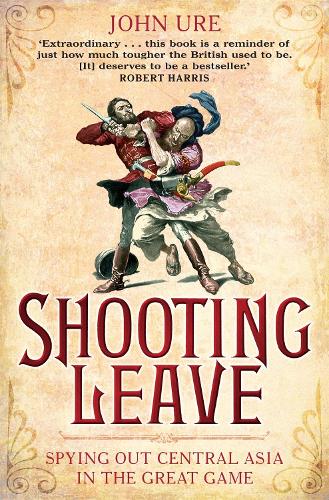
Shooting Leave: Spying out Central Asia in the Great Game
(Paperback)
Publishing Details
Shooting Leave: Spying out Central Asia in the Great Game
By (Author) Sir John Ure
Little, Brown Book Group
Constable
27th May 2010
United Kingdom
Classifications
General
Non Fiction
Asian history
954.031
Physical Properties
Paperback
304
Width 200mm, Height 131mm, Spine 21mm
246g
Description
Snow leopards and Cossacks can both be dangerous. But to young British officers in India in the nineteenth century there was only one thing more exciting than shooting wild game in the mountains and steppes of Central Asia, and that was spying out those uncharted lands and impeding the advance of Tsarist Russia towards the frontiers of the British Raj.
When the two activities were combined - in what was euphemistically called 'shooting leave' - adventures followed thick and fast.Shooting Leave tells the thrilling story of the dashing cavalry officers who volunteered for these adventures. They were individuals of talent and courage, but also of disturbing prejudice, aristocratic arrogance, missionary zeal or trigger-happy temperament. But whatever their specific task, one factor remained common to all officers sent out on covert and exploratory missions: they were expendable.Here they are brought to life as characters in their own right, as well as players in the Great Game.Reviews
Extremely entertaining ... deserves to be a surprise Christmas bestseller. - The Sunday Times
Gripping stuff.Anyone with red blood in his or her veins will be stirred by these stories ... The perfect read. - Country LifeTimely and well-crafted. - The ScotsmanWell informed and entertaining. - Catholic HeraldAuthor Bio
Sir John Ure, former British Ambassador to Cuba, Brazil and Sweden, is the author of, among other travel and historical books, Pilgrimage, In Search of Nomads, The Cossacks and The Trail of Tamerlane. He writes regularly on travel for the Daily and Sunday Telegraph, and has served on the council of the Royal Geographical Society and as chariman of the Thomas Cook 'Travel Book of the Year' panel. His recreation in Who's Who is 'travelling uncomfortably in remote places and writing about it comfortably afterwards'
